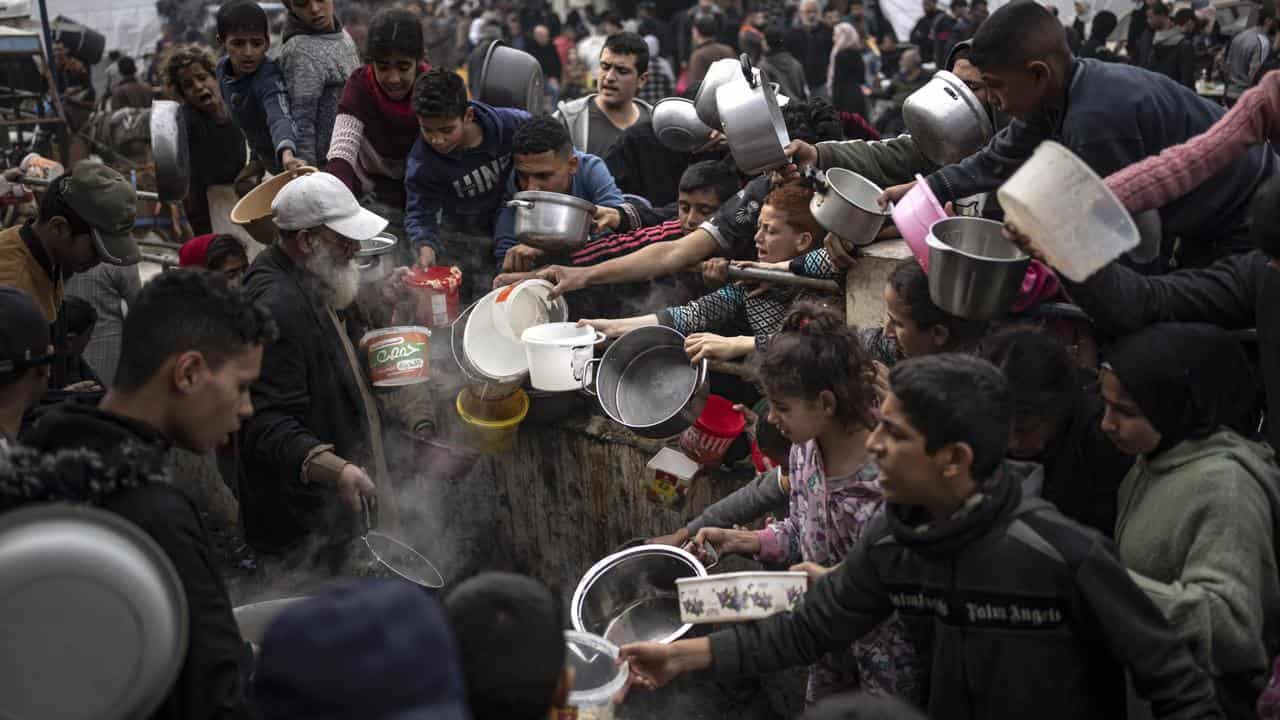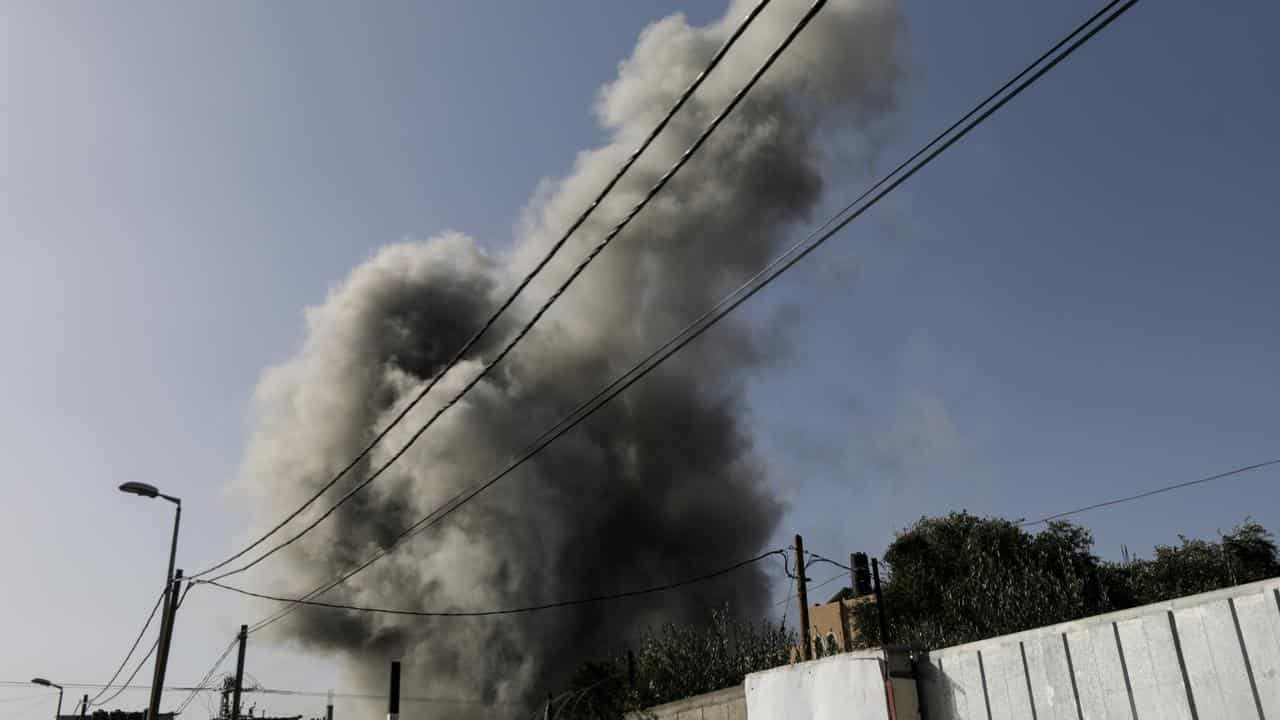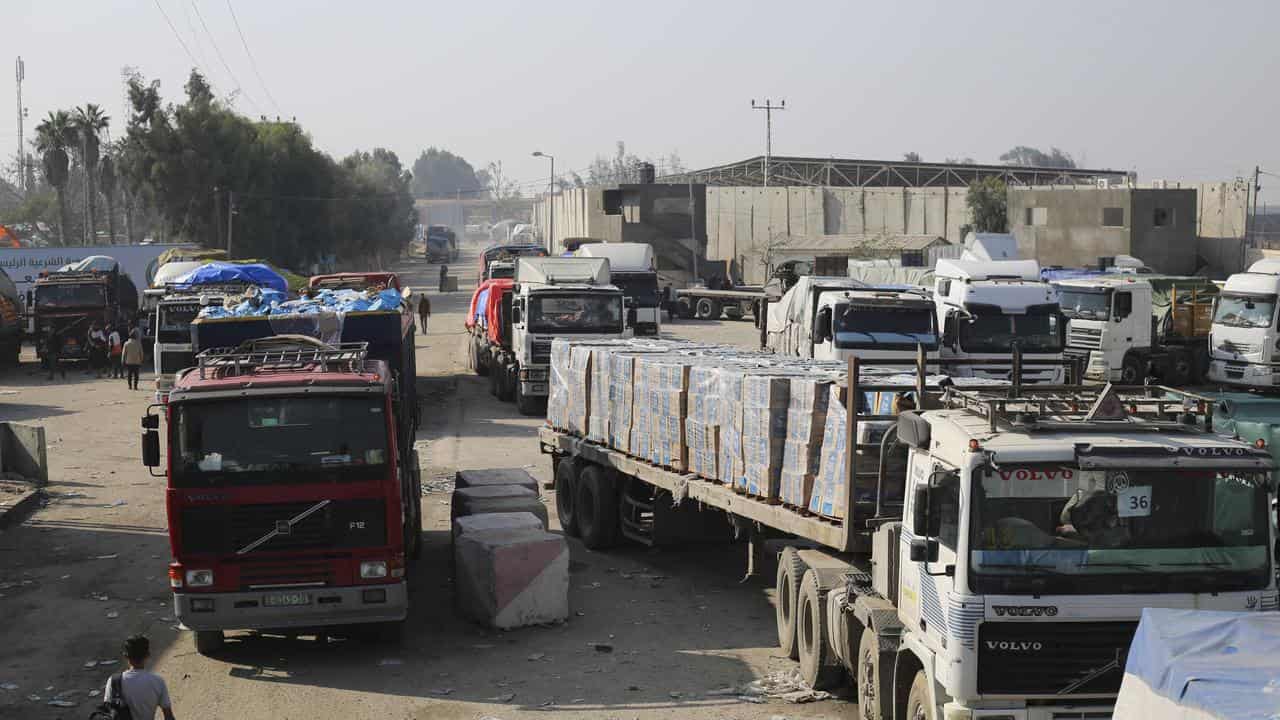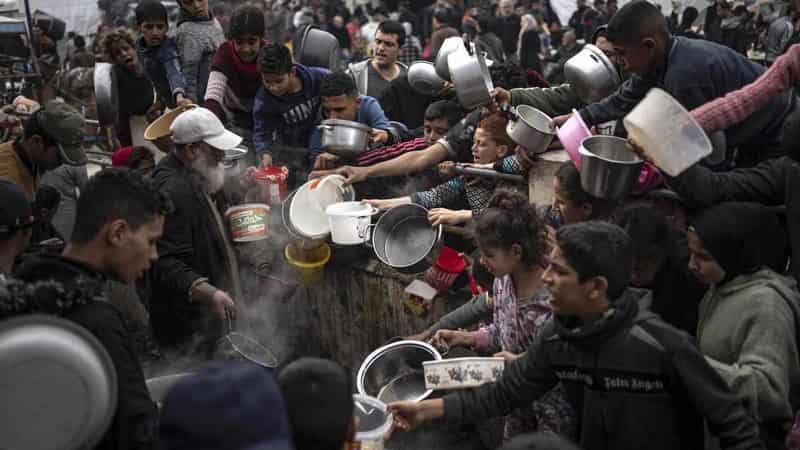
Israeli forces have fought Hamas militants in northern Gaza, where it is seeking full control so it can focus on the south, a day after the United Nations Security Council called for more aid for the Palestinian enclave but stopped short of demanding a ceasefire.
Thick smoke hung over the northern town of Jabalia - which is also home to Gaza's largest refugee camp - and residents reported persistent aerial bombardment and shelling from Israeli tanks, which they said had moved further into the town.
Hamas' armed wing Al Qassam Brigades said it was engaged in combat with Israeli forces in the area.
It said it had destroyed five Israeli tanks, killing and injuring their crews, after reusing two undetonated missiles launched earlier by Israel.
Reuters could not independently verify the report.
Almost 20,000 Gazans have been confirmed killed during the 11-week conflict, according to the Palestinian health ministry, with thousands more bodies believed trapped under rubble.
Almost all of Gaza's 2.3 million people have been displaced.
Israel says 140 of its soldiers have been killed since it launched its ground incursion on October 20, in response to an October 7 rampage into Israel by Gaza’s ruling Hamas militants, who killed 1200 people and took 240 hostages back into the enclave.
The Israeli Defence Forces (IDF) said on Saturday they had fired decoy shots in the area of Issa in Gaza City that lured dozens of militants from a building that served as a Hamas headquarters in the north of the enclave.
The army also released a video it said showed Hamas tunnels in the Issa area.
Reuters could not independently verify the location or the date.
Israel accuses the militant group of placing tunnels and other military infrastructure among civilians to use them as human shields, something Hamas denies.
Israel's chief military spokesperson said on Friday that its forces had achieved almost complete operational control of northern Gaza and were preparing to expand the ground offensive to other areas in the Strip, with a focus on the south.

The official Palestinian news agency WAFA said at least 18 Palestinians were killed and dozens others wounded in an air strike on a house in Nusseirat, central Gaza, late on Friday.
Health officials and Hamas media said separately that an Israeli air strike on a house in Nusseirat refugee camp killed three people including a journalist from Hamas' Aqsa TV channel and two relatives.
The reporter's death brings to at least 69 the number of journalists killed in the conflict, according to a tally by the Committee to Protect Journalists.
The Israeli military has expressed regret for civilian deaths and blames Iran-backed Hamas for operating in densely populated areas, arguing that Israel will never be safe until the group is eliminated.
Sirens warning of possible missile attacks from Gaza rang out across southern Israel on Saturday for the first time in about two days.
Israel has long urged residents to leave northern areas of Gaza but its forces have also been bombarding targets in central and southern parts of the tiny coastal enclave.

The conflict has spread beyond Gaza, including into the Red Sea where Yemen's Iran-aligned Houthi forces have been attacking vessels with missiles and drones in retaliation for Israel's assault on the enclave, whose Hamas rulers are backed by Iran.
An Israel-affiliated merchant vessel in the Arabian Sea off India's west coast was struck by an unmanned aerial vehicle, causing a fire, British maritime security firm Ambrey said on Saturday.
After days of wrangling to avert a threatened US veto, the UN Security Council on Friday passed a resolution urging steps to allow "safe, unhindered, and expanded humanitarian access" to Gaza and "conditions for a sustainable cessation" of fighting.
The resolution was toned down from earlier drafts that called for an immediate end to 11 weeks of war and diluting Israeli control over aid deliveries, clearing the way for the vote in which the US, Israel's main ally, abstained.
Gilad Erdan, Israel’s UN ambassador, said the Security Council should have focused more on freeing hostages held by Hamas and that concentrating on "aid mechanisms" was unnecessary as Israel permits "aid deliveries at the required scale".









